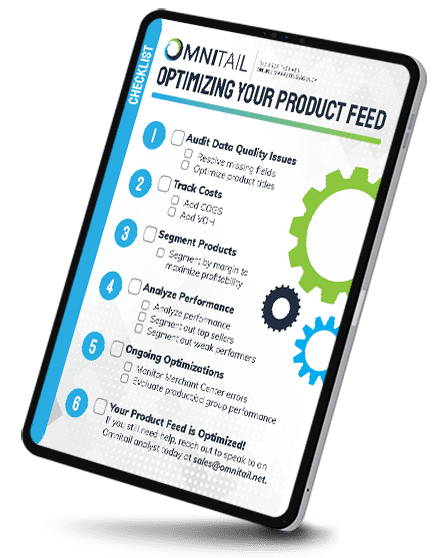On the surface, when you ask “what is an eCommerce platform?,” the answer you’ll most likely find is, “an online content management system where brands can administer and sell their products and services.” But when you dig deeper, you’ll find that eCommerce platforms have empowered businesses of all sizes to better manage their brands by providing a streamlined, more efficient way to establish an online presence and increase profitability.
Imagine you sell clothing online and are looking for the perfect eCommerce platform to bring your fashion brand dreams to life. What characteristics would you want out of the platform, and how would you describe them? If you’re unsure, you can do a quick Google search and words like “efficient,” “versatile,” and “user-friendly” will appear. But is that enough to help you determine which eCommerce platform is best for your business? Probably not.
From design, payment processing, inventory management, and more—there’s never a one-size fits-all solution because a business’s needs can vary based on company size, number of SKUs, pain points, and goals. But the fact remains: No matter if you’re a budding entrepreneur or an established enterprise, leveraging an eCommerce platform opens the door for growth opportunities and success online. In this blog post, we’ll give you the lowdown on a few of the best website builders for online stores, what each eCommerce platform is ideal for, and how you can use them to boost your brand’s profitability.
What is an eCommerce Platform? And How to Find the Best Fit
No matter if you sell clothing online or other consumer goods, there are a lot of ways you can determine which eCommerce platform is the best fit (pun intended). Are you looking to establish a brand presence, create a quick product page, or streamline your inventory management? Regardless of your objectives or industry, you should consider the following:
Available customization options. Your storefront should reflect your specific brand identity. Look for platforms that offer customizable themes and templates to align your online store with your brand’s aesthetics and requirements. If you run a trendy streetwear brand, you might prioritize platforms that offer edgy and modern layout options that allow you to easily assign your color palette, fonts, and unique design elements to your website.
Scalability of the platform. Do you have a five-year plan? What type of growth potential are you looking to achieve over the next several years? You may start with a small collection of products, but you aim to grow the amount of SKUs in your catalog to both diversify your customer base and revenue streams. Choose an eCommerce platform that can scale with your business as it expands, accommodating increased traffic, more transactions, and expanded product offerings.
Integration capabilities. Ensure the platform seamlessly integrates with essential third-party tools and services, such as payment gateways, shipping providers, and marketing tools. You might want your eCommerce platform to integrate smoothly with popular payment gateways like PayPal or Stripe, shipping providers like FedEx or UPS, and marketing hubs like Salesforce and HubSpot.
How inventory is managed. Evaluate the platform’s inventory management features, including product variations, stock tracking, and automatic inventory updates, to make sure it aligns with your processes. When it comes to business management functionality in an app or software, remember this rule of thumb: Don’t work for the program, make it work for you. When you can easily manage all the variations of items you offer, you can provide a seamless shopping experience that won’t increase emotional overhead.
Cross-device functionality. If you need to manage your business on-the-go, this one is really important. Prioritize eCommerce platforms that have a fully-functional mobile app that mimics the capabilities of the web browser version, so you can run reports, check inventory status, and do any other vital business management activities wherever you are. And with the rise in shopping on smartphones and tablets, make sure your chosen platform has responsive website designs and mobile-optimized shopping experiences.
Included marketing tools. Assess the eCommerce platform’s built-in marketing capabilities to drive traffic and sales. Depending on your brand and business goals, you might prioritize SEO management features to optimize product pages, email marketing to retarget leads or to remarket existing customers, or promotional tools like discount codes and announcement bars to convert consumers from your homepage.
Level of reliable customer support. Look for eCommerce platforms that offer out-of-the-box customer support to promptly address any issues or questions; these might include a help center, video tutorials or on-demand webinars, and responsive assistance channels (like chat). The last thing you want to experience is unhelpful support when you need it the most.
Pro Tip:
When you’re trying to decide what an eCommerce platform could do for you, consider the size of your business. For example, Shopify can suit new businesses aiming to establish an online presence, while BigCommerce is ideal for developed brands seeking expansion.
The Best Website Builder for Online Stores: Ideal Options for SMB
For small and midsize businesses (SMB), there are a plethora of eCommerce platforms available. We’ll break down a few of the most well-known options and highlight their pros and cons.
Shopify
Shopify is an eCommerce platform known for its user-friendly interface and online business management features. It offers a range of customizable website templates and integrations, which makes it easy to create a professional-looking online storefront. Additionally, Shopify has built-in tools for marketing, analytics, and inventory management—simplifying the process of running an online business.
Current tagline: “Making commerce better for everyone”
Ideal for: SMB
- Pros: This platform offers professionally designed (and free) website templates and themes, an app store, and integrations with various secure payment gateways. With built-in hosting and cyber security features—as well as great customer support—Shopify provides online brands with a comprehensive, all-in-one business management plus storefront solution.
- Cons: There is limited advanced website customization, transaction fees with third-party payment gateways, and a steeper learning curve for beginners.
WooCommerce
WooCommerce is a customizable, open-source eCommerce platform for WordPress that allows businesses to create, manage, and scale an online store using extensive out-of-the-box features and flexibility.
Current tagline: “Sell without limits”
Ideal for: SMB that use WordPress as their website content management system, and those looking for a customizable solution
- Pros: WooCommerce brings the power of an all-in-one eCommerce platform through a seamless WordPress integration. It boasts a large selection of plugins and themes, and has strong community support.
- Cons: Setting up and maintaining WooCommerce requires some technical knowledge. The platform’s performance can be affected by poorly optimized themes, outdated plugins, and WordPress or PHP updates—which may leave more to be desired.
Squarespace
Squarespace is a website builder and hosting platform that prides itself on enabling users to create professional-looking websites without needing extensive technical skills. It offers customizable templates, built-in marketing tools, and seamless integrations with third-party services. Unlike the other business platforms in this post, Squarespace is not designed strictly for eCommerce brands, but it can still be used to create and manage an online store.
Current tagline: “Create a website in minutes”
Ideal for: SMB, especially those in creative fields
- Pros: Squarespace is great for beginners, offering a variety of plug-and-play content blocks that allow users to quickly build a professional website. It has a variety of free modern website templates suitable for many industries (though it caters to creative brands), and on-brand email marketing to make it easy to retarget leads and retain customers.
- Cons: Compared to other platforms, the scalability of Squarespace is limited. If you’re seeking greater control and customization over your online storefront, the options in Squarespace may feel lacking.
The Best Website Builder for Online Stores: Ideal Options for Enterprise Brands
BigCommerce
BigCommerce is an all-in-one enterprise eCommerce platform that allows businesses to create, manage, and scale their online stores. It provides a wide range of customizable website templates, features, and integrations to meet the needs of various industries.
Current tagline: “eCommerce growth made easy”
Ideal for: Midsize-to-large enterprise brands, and fast-growing businesses looking for scalability and flexibility
- Pros: This one-stop-shop eCommerce business management platform has extensive features and tools like open APIs, omnichannel-as-a-service, and abandoned cart recovery essentials. BigCommerce is an incredibly scalable platform, with a robust trusted partner directory to provide any tech support, design, or developer needs to fill in the gaps.
- Cons: BigCommerce is a bit pricier than their competitors, because it’s designed for enterprise brands and businesses that want to scale to an enterprise level. The customization options may be limited for advanced users; and if you have a more complex setup, it will require some technical expertise.
Magento (now Adobe Commerce)
Magento, now Adobe Commerce, is an open-source eCommerce platform known for its scalability and flexibility, making it suitable for a variety of businesses. Its robust features for customization, allowing merchants to create unique online stores tailored to their specific needs. Additionally, Adobe Commerce provides powerful tools for managing products, orders, and customer relationships, enabling merchants to optimize their eCommerce operations effectively.
Current tagline: “Grow with Adobe Commerce”
Ideal for: Midsize-to-large enterprise brands that need highly customizable solutions, and have the resources to manage and maintain the platform.
- Pros: Adobe Commerce offers extensive customization options tailored to specific business needs, advanced online store management and product configuration features, and a large, active community of developers and users that provides support and resources. Additionally, it seamlessly integrates with various third-party tools and systems.
- Cons: Due to its extensive features and customization options, this platform’s learning curve can be steep for beginners. The setup and maintenance costs for Adobe Commerce may also be higher than its competitors, especially for small businesses. Managing a store can also require technical expertise, and substantial hosting infrastructure is often necessary for optimal performance.
The Omnitail Difference
Our number one goal is to provide greater accountability and performance to our customers. As a profit-driven eCommerce marketing agency, we strongly believe the marketing strategies we use to increase traffic, improve website monetization, and boost margins allow our eCommerce customers to experience continuous growth.
We pride ourselves on working with each customer to find the best approach for their specific business needs. Measuring success through metrics like operating profit, not just ROAS, equals greater accountability, integrity, and transparency—and that’s what Omnitail is all about.
Boost Your Business with an eCommerce Marketing Agency
Whether your store focuses on health and wellness, your brand caters to athletes, you sell clothing online, or you provide other consumer goods—we’re here for you. As an eCommerce marketing agency, we specialize in guiding businesses like yours to become more profitable, more efficiently. Contact us today to learn how we can help you succeed online.
Share this post
Featured Resource
Feed Optimization Checklist
Ready to maximize your Google Shopping profit? Use this quick checklist to optimize your feed.

Did you find this article helpful?
Get more delivered to your inbox just like it!








